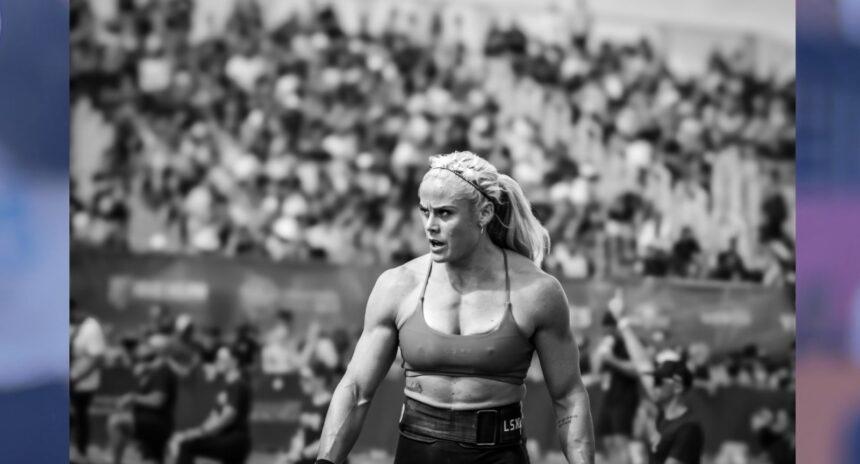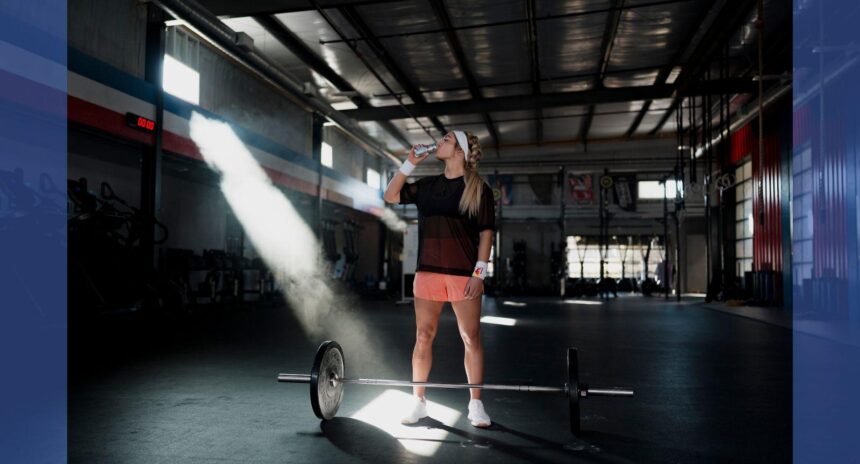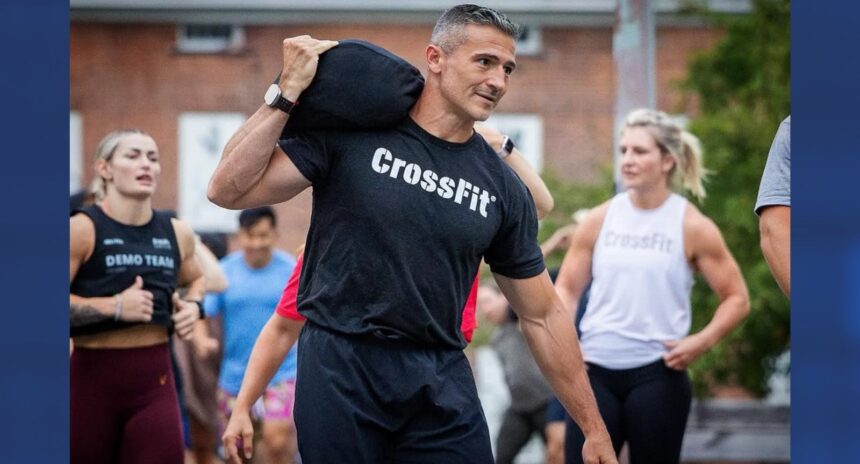CrossFit Games Employees Warned of E. coli in Lake Monona By Public Health Officials, Athletes Got Sick, One Required IV

CrossFit Games employees received phone calls and written reports from the Madison & Dane County Public Health department from July 27-29 of last year informing them the E. coli levels in Lake Monona, where last summer’s Games swim events took place, “does not meet current EPA health standards.”
“We did everything we could to inform them of the levels and the risks associated with it,” said Morgan Finke, communications coordinator for Madison & Dane County Public Health.
The CrossFit Games team went through with the swim event in Lake Monona last July despite the advisories, and two athletes stated on the record they believe the water gave them E. coli and made them sick.
Canadian Samuel Cournoyer said he sought medical attention from the CrossFit Games medical team, who surmised his illness was due to E. coli poisoning from the swim event. Cournoyer said he was put on an intravenous drip, as recommended by CrossFit Games medical staff, to replenish his electrolytes and reduce dehydration because he wasn’t able to keep food down for the large majority of the weekend.
“When I heard I wasn’t the only person who was sick from the lake, I was like, ‘That stupid lake again,’” Cournoyer said. “It seems so disrespectful to put the athletes in the lake.”
Canadian Emily Rolfe also experienced a night of “chucking up her guts” after the swim event, said her husband and coach Kyle Rolfe, and also went to the medical team on Friday to test her vitals because he was concerned.
“It was definitely a test, that’s for sure. To wake up with basically the flu and feeling rotten to knowing if I don’t compete my Games weekend is over…the whole year of training (is) gone because I’m sicker than I have been in years. Yeah, it was quite upsetting,” Rolfe said to Morning Chalk Up.
We asked CrossFit LLC for comment on the situation at Lake Monona and E.coli levels last summer. A spokesperson replied saying, “We’re going to have to decline comment this time.”
One big thing: Finke said she and her team offered CrossFit the “option to relocate to another beach (a lake where there was acceptable water quality), but that was never taken up,” she said.
- The Madison & Dane County Public Health department’s job is simply to report and advise, however, they can’t legally stop an event from happening, Finke explained. “Our job is to inform the organizers of the risk and we advised them we wouldn’t be swimming in those conditions, but ultimately it’s up to them to decide whether to host their event.”
E. coli details: From July 26-29, the Madison & Dane County microbiology team assessed Lake Monona’s water at the boat launch and beach and sent their reports to the CrossFit Games team via email. CrossFit was also “advised immediately of all results and risks associated by phone call,” Finke said.
- Generally, the Public Health team tests the water at the beach, not the boat launch, Finke explained, but CrossFit specifically requested they take samples from the boat launch. So while it’s “a routine thing” Finke said to work with event organizers, organizers also have the opportunity to request the level of monitoring they would like, as well as exact locations and frequency.
- The results: On July 26, E. coli levels were 85 MPN/100mL at the beach, considered safe, but they hit unsafe levels of 1,200 MPN/100mL at the beach (and 610 at the boat launch) on the 27, 1,400 MPN/100mL at the beach and 2,600 at the boat launch on the 28, and more than 24,000 MPN/100mL at both locations on July 29. (The individuals swam on July 28, and the teams swam on July 29).
- What these levels mean: E. coli levels more than 1,000 MPN/100mL mean they don’t meet United States Environmental Protection Agency standards, and the Public Health department advises people not to swim in the lake and puts signs up. (Olin Beach, where the swim event took place, was closed to the public from July 13-26 due to high levels of cyanobacteria. It was then reopened for just one day before closing again to the public on July 28 until August 2 due to high E. coli levels).
- Finke explained that it’s not unusual for E. coli levels to “change dramatically” in one day like they did from July 28-29, especially if there is heavy rainfall, which she said there was in and around that time.
Cournoyer’s story: Heading into Games week, Cournoyer said he felt fitter and stronger and more prepared than ever.
A couple nights before the swim event, Cournoyer was out for dinner and ran into some locals who asked if they were there for the CrossFit Games.
“They were so surprised we were going to swim in the lake because it’s so gross,” Cournoyer said, adding they told him the lake was closed for swimming because of poor water quality.
He didn’t think much of it. “I was like, ‘Yeah, yeah yeah,’” he said.
The first day at the Games went well for Cournoyer as he came 14th in the swim event and followed that with a second place finish in Event 2, the muscle-up, pig flip and sled drag event. Then Thursday night hit.
“I basically threw up the whole night (on Thursday) and at 5 a.m. Friday morning I decided to talk to the medical team because basically I was dying. I was barely able to walk. They put me on an IV just to try to rehydrate myself. Then I unplugged the IV two hours before (the first) workout on Friday,” he said. “I couldn’t eat anything, and the only thing my body could keep inside was Gatorade and a bit of a bagel. I didn’t really eat anything for the next 48 hours,” he added.
While he thought he might have food poisoning, the timing wasn’t adding up and Cournoyer said the CrossFit Games medical team deduced to him he was experiencing E. coli poisoning from swallowing water in the swim event. He said this made him angry.
“Everyone knows there’s a pool 10 minutes away and another lake 15 to 20 minutes away that everyone says is clean, so it kind sucks the CrossFit Games is doing a swim in a lake like that when there are other places you can do it,” he said.
From Friday to Sunday, Cournoyer said he felt like he was simply trying to “survive.”
“I was pissed because my fitness level doesn’t represent where I (ended up) on the leaderboard. I wasn’t even competing, wasn’t even pushing myself. I was just trying to survive and finish the weekend. But trying to compete with the best in the world (in that state) is impossible.”
The big picture: Athletes and coaches say it’s well-known some athletes get sick from the lake every year, so much so that athletes like Björgvin Karl Guðmundsson takes active charcoal right after the lake swim, which helps absorb toxins, he explained on The Sevan Podcast. Guðmundsson said he thinks this is the only reason he hasn’t become sick from the water in Madison.
- “It seems that every year we always hear of a handful of guys that got diarrhea, and if we’re hearing about a handful, I’m guessing most people are too embarrassed to talk about it, so I just assume it’s the entire pack,” said podcast host Sevan Matossian while talking to Guðmundsson.
- Patrick Vellner, who also experienced some “bad guts” after the swim event, explained he has just grown to expect it after swimming in Lake Monona.
- Michele Letendre, Vellner’s coach, also said that getting sick from the lake has become just part of the Games experience: “It’s like that every year, (yet)…they still freakin do it, so I think it’s time that the athletes say something. But athletes don’t want to be on the wrong side… Every single year there are problems with the water. Every single year. Like every time we go to Madison… no local is swimming in the water.”
- Underdog Athletics coach Justin Cotler added: “I mean, ‘C’mon man.’ The week is hard enough physically and then you’re going to add that on top of it. It just doesn’t make sense. We need to really look out for those athletes. It’s just irresponsible (to swim in that lake),” Cotler said. “It’s just ridiculous.”


